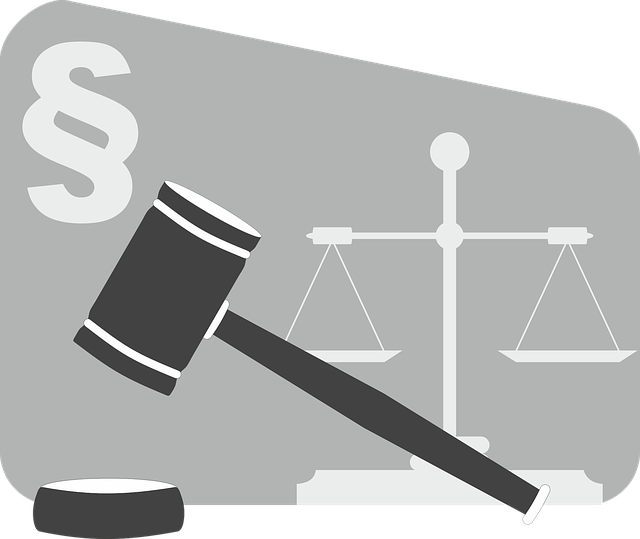Financial fraud, a global and dynamic threat, takes various forms including credit card fraud, insurance scams, investment schemes, and money laundering, all aiming to illegally acquire funds or assets. Navigating the complex Regulatory Challenges in Securities Fraud Cases is crucial for detection and prevention due to its far-reaching consequences like eroded trust, market instability, and economic downturns. Globalized markets and sophisticated fraudsters exploiting regulatory loopholes further complicate matters. Harmonizing regulations, international cooperation, and advanced technologies like machine learning are essential to combat these threats effectively. The evolving nature of financial crimes necessitates adaptable strategies to keep pace with technological advancements.
Financial fraud detection is a complex yet critical aspect of maintaining integrity in global financial markets. This article explores various dimensions of this challenge, from understanding the diverse types and significant impact of financial fraud to examining regulatory frameworks worldwide. We delve into specific case studies illustrating regulatory challenges in securities fraud cases, highlighting the need for innovative solutions. Additionally, we survey advanced technologies and emerging trends shaping the future of fraud detection.
- Understanding Financial Fraud: Types and Impact
- Regulatory Frameworks for Fraud Detection: Global Perspectives
- Challenges in Securities Fraud Cases: Case Studies
- Advanced Technologies and Future Trends in Fraud Detection
Understanding Financial Fraud: Types and Impact

Financial fraud is a complex and evolving crime that can take many forms. Understanding the various types of financial fraud is crucial for effective detection and prevention. Common types include credit card fraud, insurance claim scams, investment schemes, and money laundering. Each type has its own unique characteristics, but all share a common goal: to obtain money or assets illegally. The impact of financial fraud extends far beyond the immediate loss; it erodes trust in financial institutions, disrupts market stability, and can even lead to economic downturns.
Regulatory challenges in securities fraud cases further complicate detection efforts. As markets become more globalized, so do fraudulent activities, making international cooperation essential. General criminal defense strategies may not always be effective against sophisticated fraudsters who often employ intricate schemes and leverage loopholes in regulations. Achieving extraordinary results in financial fraud cases requires a deep understanding of the respective business practices, regulatory frameworks, and the latest trends in fraudulent behavior.
Regulatory Frameworks for Fraud Detection: Global Perspectives

The global financial landscape is governed by a complex web of regulatory frameworks designed to combat financial fraud, with each country adopting its own approach. These regulations present both opportunities and challenges in fraud detection and prevention. One significant challenge lies in the varying standards and enforcement mechanisms across jurisdictions, creating potential loopholes for fraudulent activities to thrive. For instance, while some countries have stringent anti-money laundering (AML) laws, others may lack comprehensive frameworks, making it easier for criminals to move funds across borders without detection.
Regulatory challenges in securities fraud cases are further exacerbated by the dynamic nature of financial markets and evolving criminal tactics. International cooperation is crucial in achieving extraordinary results in these complex cases. By harmonizing regulations and sharing intelligence, countries can strengthen their defenses against white-collar and economic crimes. A unified front not only facilitates the complete dismissal of all charges in high-profile fraud cases but also serves as a powerful deterrent, underscoring the severity of such offenses.
Challenges in Securities Fraud Cases: Case Studies

Navigating regulatory challenges in securities fraud cases is a complex task due to the intricate nature of financial markets. These investigations often involve multi-jurisdictional matters, requiring collaboration between various regulatory bodies and law enforcement agencies worldwide. The global reach of securities markets presents a significant hurdle, as laws and regulations vary across countries, complicating the pursuit of justice. For instance, a case study involving a cross-border fraud ring highlights the difficulties; the perpetrators exploited loopholes in different nations’ financial systems, making it challenging for regulators to keep pace.
White collar and economic crimes, such as securities fraud, demand meticulous investigation strategies. Law enforcement agencies must uncover complex schemes while avoiding indictment based on circumstantial evidence. White collar defense tactics are designed to challenge the prosecution’s case, often focusing on technicalities and regulatory nuances. By studying these cases, investigators can develop enhanced methodologies to prevent and detect fraud, ensuring a more robust legal framework that deters future criminal activities in the financial sector.
Advanced Technologies and Future Trends in Fraud Detection

The evolution of fraud detection has been significantly accelerated by advanced technologies, transforming how financial institutions approach security. Machine learning algorithms now play a pivotal role in identifying patterns and anomalies in vast datasets, enabling real-time risk assessment. Natural Language Processing (NLP) enhances data analysis by scrutinizing textual information, such as documents and social media posts, to uncover fraudulent activities that might otherwise go unnoticed. Additionally, artificial intelligence (AI) facilitates predictive analytics, allowing institutions to anticipate potential fraud schemes before they occur. These technologies not only bolster security measures but also present a formidable challenge for regulators navigating the complex landscape of financial regulation, particularly in high-risk areas like securities fraud cases.
Looking ahead, the future of fraud detection is likely to be shaped by even more sophisticated tools and innovative approaches. Blockchain technology, for instance, offers enhanced transparency and traceability, addressing regulatory concerns surrounding the monitoring of transactions across diverse markets. Quantum computing promises unprecedented computational power, enabling more complex data analyses at speeds unattainable by conventional systems. These developments will require a dynamic regulatory framework to keep pace with technological advancements, ensuring that general criminal defense strategies remain effective while adapting to serve the best interests of corporate and individual clients in an ever-changing financial landscape.
Financial fraud detection is an evolving field, with regulatory frameworks and advanced technologies playing pivotal roles in combating global fraud. While significant progress has been made, addressing regulatory challenges in securities fraud cases remains a complex task. As we look to the future, leveraging emerging trends such as artificial intelligence and machine learning will be crucial for enhancing detection capabilities and staying ahead of fraudulent activities. By understanding the various types and impacts of financial fraud, and staying informed about both global perspectives and case studies, stakeholders can navigate these regulatory challenges effectively.






